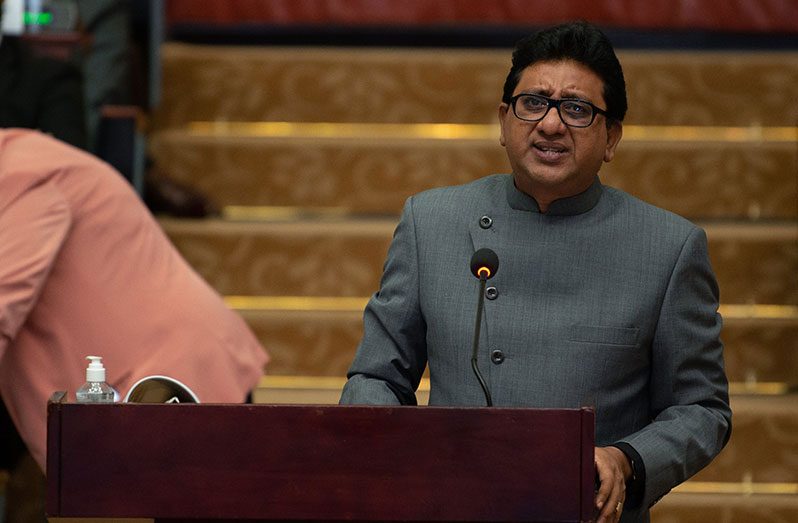— Attorney-General
THE draft proposed electoral amendments which were recently put forward by the government, and are currently out for consultations are only ordinary statutory amendments, and not amendments to the Constitution of the Co-operative Republic of Guyana.
This was reiterated by Attorney-General and Minister of Legal Affairs, Anil Nandlall, S.C., during his weekly television programme, ‘Issues in the News’ on Tuesday evening, while responding to misunderstandings pertaining to the amendments.
Attorney-at-law Ralph Ramkarran, S.C., in his weekly column, ‘the Conversation Tree’, on Sunday last purported that the draft proposed electoral amendments are “woefully inadequate”, as “much more is required, and this was the opportunity to accomplish needed reforms in other areas of the electoral system”.
In making his claim, the Senior Counsel reminded of several ideas in relation to electoral reforms he has put forward throughout the years, including but not limited to a mixed electoral system, terms of office for Commissioners of the Guyana Elections Commission (GECOM), and changes to the National Registration Act.
The Attorney-General responded by highlighting that most of the recommendations offered by Ramkarran are constitutional in nature, and would require amending the Constitution itself; however, the current proposed amendments are only to reform ordinary electoral legislation.
Guyana’s Constitution is a ‘written Constitution’, whereby the fundamental laws are separated from the ‘ordinary laws’, and are codified into a single document. It is referred to as the highest law of the country that is guarded by the Supreme Court, and its provisions are entrenched.
Article 164 of the Constitution of the Co-operative Republic of Guyana speaks to the procedure for altering the Constitution. It explicitly lists a number Articles which are only to be amended through a referendum, while other provisions require a two-thirds majority of votes of the National Assembly.
Nandlall reminded that the People’s Progressive Party/Civic (PPP/C) only has a simple majority in the National Assembly, and, therefore, the amendments currently being pursued are only those to ordinary electoral statutes. Constitutional reform, he said, will follow.
HAVE TO BE ADDRESSED DIFFERENTLY
“Constitutional provisions which affect elections will have to be addressed differently, as we don’t have the requisite majority to effect these changes,” the AG said, adding: “The process in which we are engaged is one which is incapable of addressing the electoral system.”
Nandlall also reiterated that in addition to the draft proposed amendments to the Representation of the People Act (RoPA), which are currently out for consultation, a second set of proposed amendments will follow, namely, amendments to the National Registration Act.
Ramkarran also opined that with the government proposing the draft electoral amendments, it is “unlikely to divert from this already decided course, except perhaps with minor amendments”.
However, Nandlall emphasised that the amendments “are not crafted in stone”, and reminded that they are currently out for consultation, so that citizens at large can scrutinise and offer recommendations, which he encourages.
“We don’t pretend to have a monopoly of answers, or a monopoly of knowledge in relation to the law or what the electoral changes should be. We have put forward our proposals; it is now for other political parties, for civil society, for citizens generally to share their views as well,” Nandlall said.
The Attorney-General emphasised that great care and circumspection were employed when drafting the proposed amendments to ensure that the amended sections are not intended or designed to give any political party an electoral advantage, but only to make the electoral machinery stronger.
The draft proposed electoral amendments are in keeping with the PPP/C’s commitment to electoral reform, following the five months of shenanigans which followed the March 2, 2020 General and Regional Elections, and saw a number of allegations of electoral fraud being made against the then APNU+AFC government and senior GECOM officials.




.png)









